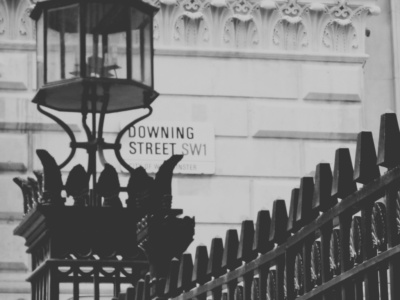With inflation standing at a 45-year high of 10.4%, there has been a growing trend of Brits – most commonly those approaching retirement – turning to investing in property due to the increased concerns about the effect of inflation on their savings.
New data has revealed that 1-in-4 Brits (25%) plan to invest in property to generate income for their retirement and enjoy a comfortable lifestyle.
However, since the announcement in the Spring Budget that the total amount workers can accumulate in their pension savings before tax has been abolished, property tax expert and Group Chairman of Cornerstone Tax, David Hannah believes that this could have a detrimental impact on the already strained buy-to-let sector in the UK.
A new study has revealed that 64% of Brits say, as a retiree in a cost-of-living crisis, one of their biggest stresses is the impact of the current economic climate on their savings and pension.
Excluding the value of long-term mortgages, the property market is rarely affected negatively by inflation and has witnessed a notable rise in property values despite inflation concerns.
However, with the cap on pensions being rendered absolute, it may mean that the market sees a reduction in the number of retirees entering the buy-to-let market.
Hannah states that many people who were subject to this limit, actually went out and invested capital in the private rental sector, because that was the only way to guarantee topping up their income, which otherwise may have been inadequate in retirement.
The removal of the lifetime allowance now provides individuals with more options in terms of where they invest their pension, causing buy-to-let properties to become a less desirable option.
However, property investment is not without its risks.
There are a number of obstacles affecting the property market this year, including house prices being the most expensive they’ve been for almost 150 years relative to average earnings according to Schroders.
Adding to this, both tenants and landlords are facing significant issues in the UK rental market as data from the Office for National Statistics (ONS) shows that tenants in properties owned by private landlords have faced the highest rise in rent since records began seven years ago.
This means that affordability has become an issue for many, however due to a chronic lack of supply in the rental sector, new entrants to the buy-to-let market are still likely to find tenants.
David Hannah, Group Chairman at Cornerstone Tax, discusses:
“I think one of the best measures announced from the Budget is the scrapping of a lifetime cap on a pension fund which has been held at the same level for about 10 years.
Now, we have the real prospect that people such as senior executives, entrepreneurs, and other high-earning individuals will have a no limits pot that they can put into, which is great, it will provide them with more flexibility and options for their pension.
“However, this could have a knock-on effect on the buy-to-let market. Many people who were subject to this limit previously went out and invested capital in the private rental sector, because that was the only way to guarantee topping up their income, which otherwise would have been inadequate in retirement.
“Now, individuals will have more options in terms of where they want to invest their pension, which could make buy-to-let investing less desirable. What we probably need is a liberalisation of the pension funds and investment rules.
If all that money is going to flow into pension funds, it’s got to be invested somewhere.
Why not liberalise how you can invest and allow you to invest in yourself or in private companies, because currently, you can’t do that.
This could also see a rise in investment in small businesses in the UK providing them with a platform to grow – such as those in the construction sector which could aid the undersupply of properties.
The problem is going to be for pensioners who are already pensioners who don’t have any earned income anymore, they can’t take advantage of this – they will feel stuck with their current pension.
For people in their 40s or 50s, who may feel that they’re underfunded, or their lifetime allowance wasn’t enough, they now have more opportunities whereas previously, they weren’t given a choice.”






















Comments